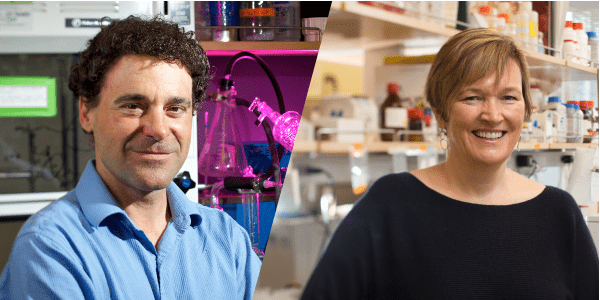Patrick Stayton, the Distinguished Career Professor of Bioengineering and director of the UW Molecular Engineering and Sciences Institute, and Valerie Daggett, professor of bioengineering, will present 2016-2017 UW Medicine Science in Medicine Lectures. The Science in Medicine Lecture series, presented on behalf of the School of Medicine and Council on Research and Graduate Education, features talks by UW Medicine faculty researchers and clinicians on topics representing the breadth and diversity of UW Medicine’s cutting-edge research and clinical care.
Patrick Stayton’s talk details
Wednesday, November 30, 2016
1-2 p.m.
Turner Auditorium, Health Sciences Building D-209
Molecular bioengineering of biologic drug therapies
Biologic drug therapies based on proteins, RNA, DNA and engineered cells have the broad target range that could translate the potential of the Genome Era into impactful new classes of therapeutics and Individualized Medicines. Today, however, biologic drug therapies are often limited by delivery and manufacturing barriers. We have been developing RAFT-based polymeric drug carriers and cell manufacturing systems that enable new approaches to biologic therapies. These platforms also provide opportunities for small molecule therapies and biomarker/diagnostic profiling. The delivery systems for proteins and nucleic acids mimic the highly efficient intracellular delivery systems found in pathogenic viruses and organisms. The carriers are applicable to a wide range of biotherapeutics, and might open up new families of peptide, antibody or nucleic acid drug candidates that attack previously inaccessible intracellular targets. Polymeric materials of a similar class are being developed to improve biomarker and cell isolation technologies, as well as to improve biological manipulation steps necessary to scale and streamline new T-cell and stem cell therapies. This talk will highlight some of the new capabilities of these therapeutic, diagnostic, and cell manufacturing platforms.
About Patrick Stayton
Distinguished Career Professor of Bioengineering Patrick Stayton develops new drug delivery systems and diagnostic technologies to enable earlier detection and treatment of cancer, infectious disease and other illnesses. As a world-renowned researcher in molecular bioengineering, Dr. Stayton has published over 200 scientific papers. He is inventor or co-inventor on over 15 patents and patent applications, and has spun out two companies, Nexgenia and PhaseRX. He has received numerous national awards for his research and service promoting opportunities for underrepresented minorities in science and engineering. He is a founding director of UW’s Institute for Molecular Engineering and Science and Center for Intracellular Delivery of Biologics.
Valerie Daggett’s talk details
Dynameomics: From Simulation of All Protein Folds to the Design of Amyloid Inhibitors and Diagnostics
Thursday, January 26, 2017
Time TBD
Location TBD
Talk abstract
We have been involved in the development and use of atomistic computer simulations of proteins to characterize protein dynamics, unfolding, and conformational changes associated with disease. In so doing we discovered a novel structure adopted by amyloidogenic proteins, but not ‘normal’ proteins, and we proposed that it defines the toxic soluble oligomers formed en route to the nontoxic mature fibrils. As such, this structure, which we call a-sheet, represents a novel target for amyloid therapeutics and diagnostics. We have designed, synthesized, and tested compounds to be complementary to this ‘toxic’ structure and they inhibit amyloid formation of Ab (Alzheimer’s Disease), transthyretin (systemic amyloid disease and heart disease), and amylin (type 2 diabetes).
About Valerie Daggett
Valerie Daggett obtained her BA from Reed College in Portland Oregon in 1983. A couple of years later she went to the University of California, San Francisco for her PhD (awarded in 1990) and was then a postdoctoral fellow at Stanford University. She joined the faculty at UW in 1993 where she is a professor in the Department of Bioengineering. She has published over 230 scientific papers.
About the Science in Medicine Lecture Series
The Science in Medicine Lecture Series was officially established in 1976 as a means of recognizing and honoring notable School of Medicine faculty research achievements and providing an opportunity for researchers to be apprised of findings outside of their immediate field. See a complete list of previous Science in Medicine speakers (opens in new window). The series has evolved since its inception and now consists of five lecture categories: Science in Medicine Lectures, New Investigator Lectures, the WWAMI Lecture, the Distinguished Scientist Lecture and the Annual Lecture. The speakers are nominated by members of the UW scientific community and final selection is determined by a committee of peers from the Council on Research and Graduate Education.


